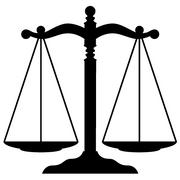
There are two main methods of distributing assets upon death: wills and trusts. While both of these estate planning procedures designate beneficiaries for real property and other assets, they take different approaches. Here's a closer at each option and how it can impact your loved ones.
What Is a Will?
A will is a legal document that outlines your wishes for the distribution of your assets after your passing. Its primary purpose is to designate an executor to administer your estate and to distribute your assets to the persons you want. In it, you list property, investments, and funds, and who you want them to be transferred to. If you have minor children or pets, you can also designate a guardian.
With a will, the estate goes through probate after you pass away. However, having a legal document in place prevents any questions arising in court regarding your wishes, which can help speed the process up.
What Is a Trust?

A trust takes a more complex approach to estate planning. A trust is a document that defines a fiduciary relationship between you and your trustee as to the holding, use and distribution of assets during your life and after death. Yet, as the trustor pf a revocable trust, you maintain full control until you die, after which the property is distributed.
With both wills and trusts, an executor or trustee is chosen to ensure the transfer of assets. However, a trust can keep the estate out of probate as long as it's done correctly. A trust also allows you to set forth stipulations, which require beneficiaries to meet specific criteria before gaining access to the funds or property.
Protect your beneficiaries with the assistance of Nichols, Speidel & Nichols in Batavia, OH. Serving Clermont County since 1926, the local law firm is committed to providing a personalized approach to estate planning. Along with wills and trusts, the attorneys also offer personal injury and family law services. Review their practice areas online, and request a free consultation at (513) 732-1420.
About the Business
Have a question? Ask the experts!
Send your question

